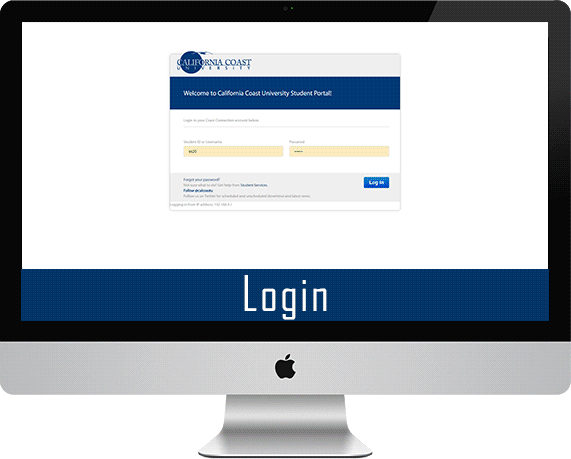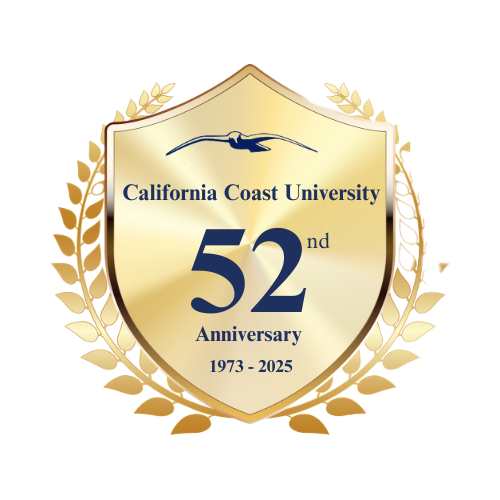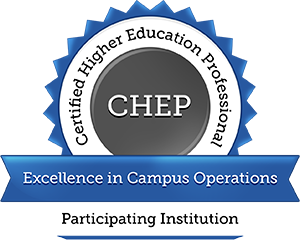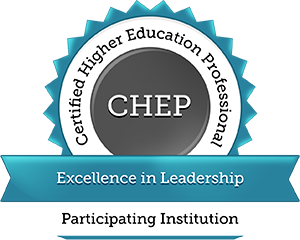Management
Master of Business Administration (MBA)
Online Degree Program
The Master of Business Administration online degree program in Management is designed to provide management professionals with the principles and best practices current to the management field. For this, students will examine history, theory, research, best practices, and factors impacting the field. The program includes courses in the areas of human relations, management information systems, human resource management, financial management, organizational behavior, business ethics, project management, leadership, employee training and development, strategic management, modern management, E-commerce management, and research.
Designed For You
The California Coast University online Master of Business Administration in Management program was designed for complete flexibility for the student. All courses are self-paced and completed 100% online.
-
Low tuition with interest-free payment plans as low as $150/month.
-
Flexible programs designed to fit into your busy schedule. Self-paced study with no group projects, set meeting times, or exam dates.
-
The program is not structured in semesters, quarters, or terms. It is designed to allow students to begin their online studies at any time of the year.
-
CCU offers a tuition discount for Active Duty Military, Veterans, Law Enforcement, Firefighters, Government Employees, and CCU Graduates.
We also offer a 10% discount for Corporate Partner employees. For more information on how to become a Corporate Partner, see our Corporate Partnership Information Page.
*Employment verification is required. Offer good for students who enrolled after January 2024 and were offered discount at time of enrollment. Offer is not retroactive for students already enrolled. Discount and/or prices subject to change and/or cancellation at any time without notice. This offer cannot be combined with any other discount(s).
.png)
Upon successful completion of the program, students will be able to:
- Evaluate and integrate various theories, key concepts, and research related to the field of management.
- Evaluate processes, strategies, and best practices currently being utilized in management.
- Analyze various factors, developments, and trends impacting the field of management.
- Examine ethical and legal issues related to the field of management.
- Examine program content in relation to ethical reasoning, social responsibility, global citizenship, and civic engagement.
- Utilize critical thinking, academic writing, and research skills to explore key concepts and theories related to program content.
Great personal accomplishment.Great program. Supportive staff.
Explore The Program
The Master of Business Administration in Management degree program consists of 13 total courses, followed by a final Comprehensive Examination.
The required courses are comprised of:
13 Core Courses
.
There are 39 total semester units in this program.
For the online Master of Business Administration in Management (M.B.A.) degree program, the following 13 courses must be fulfilled. Click on course title to expand and read more.
| ID | Course Name | Units | |
|---|---|---|---|
| BAM 501 | Human Relations | 3 | |
| BAM 509 | Management Information Systems | 3 | |
| BAM 510 | Human Resource Management | 3 | |
| BAM 513 | Financial Management | 3 | |
| BAM 515 | Organizational Behavior | 3 | |
| BAM 530 | Business Ethics | 3 | |
| BAM 540 | Project Management | 3 | |
| BAM 550 | Leadership | 3 | |
| BAM 554 | Employee Training and Development | 3 | |
| BAM 560 | Strategic Management | 3 | |
| BAM 562 | Modern Management | 3 | |
| BAM 570 | E-Commerce Management | 3 | |
| GRM 597 | The Research Process | 3 | |
| BAM 598 | BAM 598 Final Comprehensive Examination | 0 | |
Prerequisites to Admission:
An applicant must have earned a Bachelor Degree in Business Administration, Leadership, Management. A Bachelor Degree in another field may be considered if the Admission Committee evaluation indicates that the applicant has the necessary foundation to succeed in the program.
FAQ About Coursework
Required units may be satisfied in the following ways:
-
California Coast University has developed comprehensive Study Guides, for each course, that are designed to coordinate and sequence the learning materials within the required textbook. The following points will help to illustrate how the Study Guides are designed:
- Study Guides are based on specific college level textbooks, which may be obtained from local bookstores, the publisher, or the University's Rental Library.
- Each Study Guide is organized with a complete syllabus, along with instructional materials to guide the student chapter by chapter through the corresponding textbook.
- Each Study Guide contains an overview and summary of all textbook chapters, along with a listing of important keywords (with definitions), and self-tests (with answers) on key points.
- Study Guides include 4 unit exams equally spaced throughout the instructional materials, one writing assignment per unit, and the final examination.
- Examinations are designed to test the student on the information contained within the preceding chapters.
- All tests have no time limit and may be completed as open book tests.
-
Transcripts of previously completed master's level academic work are evaluated and credit may be transferred to meet existing coursework requirements. The following guidelines are utilized when accepting transfer credit for a master's degree program:
- Master's degree students may receive transfer credit for up 6 semester units of previously completed coursework.
- Courses must have been completed at a college or university accredited by an agency recognized by the United States Department of Education or its foreign equivalent.
- Transfer grades earned must be equivalent to a letter grade of B (3.0 GPA) or higher.
- No specialized training or experiential learning credit can be awarded at the graduate level.
-
During the admissions process, all professional experience is reviewed to determine if an applicant has sufficient occupational experience to warrant completing a Challenge Examination in lieu of a Study Guide for a particular course. The following factors are considered:
- An applicant may be offered an opportunity to complete a Challenge Examination if the candidate's occupational expertise appears to be comparable to the objectives identified for a particular course.
- Successfully passing a Challenge Examination will demonstrate an acceptable level of competence for that course.
- If a student does not pass a Challenge Examination they are assigned a Study Guide for completion.
- The maximum amount of Challenge Examinations allowed for each program level are: Associate 4; Bachelor's 10; Master's 2; Doctorate 0; and Certificates 1.










.jpg)






